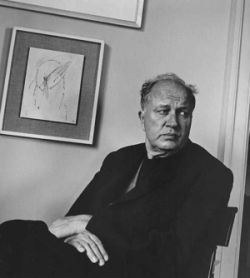
Our lives avoided tragedy
Simply by going on and on,
Without end and with little apparent meaning.
Oh, there were storms and small catastrophes.
Simply by going on and on
We managed. No need for the heroic.
Oh, there were storms and small catastrophes.
I don't remember all the particulars.
We managed. No need for the heroic.
There were the usual celebrations, the usual sorrows.
I don't remember all the particulars.
Across the fence, the neighbors were our chorus.
There were the usual celebrations, the usual sorrows
Thank god no one said anything in verse.
The neighbors were our only chorus,
And if we suffered we kept quiet about it.
At no time did anyone say anything in verse.
It was the ordinary pities and fears consumed us,
And if we suffered we kept quiet about it.
No audience would ever know our story.
It was the ordinary pities and fears consumed us.
We gathered on porches; the moon rose; we were poor.
What audience would ever know our story?
Beyond our windows shone the actual world.
We gathered on porches; the moon rose; we were poor.
And time went by, drawn by slow horses.
Somewhere beyond our windows shone the actual world.
The Great Depression had entered our souls like fog.
And time went by, drawn by slow horses.
We did not ourselves know what the end was.
The Great Depression had entered our souls like fog.
We had our flaws, perhaps a few private virtues.
But we did not ourselves know what the end was.
People like us simply go on.
We had our flaws, perhaps a few private virtues,
But it is by blind chance only that we escape tragedy.
And there is no plot in that; it is devoid of poetry.
Poem By Donald Justice










